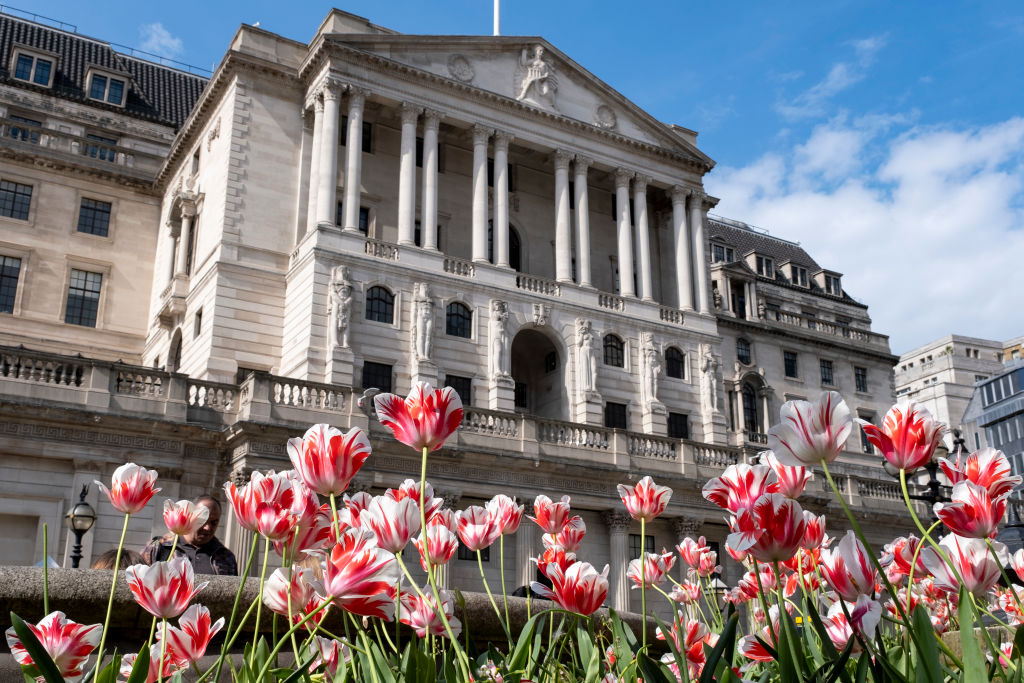UK inflation is at a 30-year high and it hasn’t peaked yet
UK inflation has hit 5.4% - its highest in 30 years. And it could be heading higher. John Stepek explains what it means for you and your money.


Get the latest financial news, insights and expert analysis from our award-winning MoneyWeek team, to help you understand what really matters when it comes to your finances.
You are now subscribed
Your newsletter sign-up was successful
Want to add more newsletters?

Twice daily
MoneyWeek
Get the latest financial news, insights and expert analysis from our award-winning MoneyWeek team, to help you understand what really matters when it comes to your finances.

Four times a week
Look After My Bills
Sign up to our free money-saving newsletter, filled with the latest news and expert advice to help you find the best tips and deals for managing your bills. Start saving today!
UK inflation is now rising at its fastest pace since the early 1990s, regardless of which measure you use.
Consumer prices, retail prices, retail prices excluding mortgage costs, “core” consumer prices (no food, no fuel, no booze, no cigarettes – nothing you need, in other words) – are all at the highest they’ve been in 30-odd years.
So what happens now?
MoneyWeek
Subscribe to MoneyWeek today and get your first six magazine issues absolutely FREE

Sign up to Money Morning
Don't miss the latest investment and personal finances news, market analysis, plus money-saving tips with our free twice-daily newsletter
Don't miss the latest investment and personal finances news, market analysis, plus money-saving tips with our free twice-daily newsletter
The Bank of England has never missed the inflation target by this much
In December, the Bank of England’s target measure of inflation – the consumer prices index (CPI) – rose at an annual rate of 5.4%. The Bank is meant to keep that number to 2%, give or take a percentage point, or else the governor has to write a letter to the chancellor explaining why inflation has overshot (or undershot, as has been frequently the case over the last ten years or so).
The Bank of England’s previous inflation target is looking even messier. Before 2003, the Bank targeted the retail price index excluding mortgage interest costs (RPIX). It had to keep this measure to 2.5%, with one percentage point’s grace on either side.
The RPIX measure excluded mortgage interest costs because if inflation was too high, the Bank would want to raise interest rates. That in turn would have pushed up mortgage interest costs, and so it would look as though they’d made inflation worse.
This makes sense at a practical level, but at another it also shows how hard it is to pin down what we mean by inflation. After all, if my mortgage bill goes up, my cost of living has gone up.
Anyway, both of these measures are now higher than we’ve seen since the early 1990s. What’s more, as Paul Dales of Capital Economics points out, “CPI inflation is now further above the Bank of England’s target than at any point since the UK first adopted an inflation target in October 1992”.
That raises an interesting question to which you probably already know the answer: why have central banks become worse at controlling inflation over the past 30 years? Is it because of the change of personnel? Is it because they changed the number of semicolons they use in the minutes? Is it because of quantitative easing?
Or is it – bear with me – just maybe because they don’t really control inflation in the first place? And that the only reason inflation targeting by an apparently expert technocracy came in was because everyone agreed after the 1970s and 1980s that inflation was bad, and so the idea was politically popular?
Central banks remained in charge of interest rates because the backdrop was disinflationary, which meant that the 2% inflation target allowed for an ongoing loosening of monetary policy which politicians were only too happy with.
Now things are going the other way; now hard choices have to be made. And – surprise, surprise – the politicians are getting back in on the act. We’ve got prices being capped – or threatened with capping – all over Europe (energy prices); we’ve already got a lot of politics around the Federal Reserve, and we’re only going to see more of it.
Inflation could be heading above 7% on the official measure alone
What does it mean for your money? I struggle to see interest rates moving much higher as a result of this, at least in the first instance. The Bank of England is moving out of “emergency” mode, but it really is caught between a rock and a hard place. Higher inflation will hurt, but higher interest rates would hurt too.
It’s not as though they can just shrug this off. The Bank’s predictions have persistently undershot, and Capital Economics reckons that they’ll undershoot again – it sees inflation coming in at above 7% in April (and that’s just on CPI, never mind RPIX); it also thinks that inflation will stay above 4% all year and won’t return to target until at least April 2023.
So we have a nasty juggling act. The fact is that this sort of inflation is more of a problem for your immediate finances than for your long-term ones.
You can attempt to inflation-proof your portfolio – there are assets that tend to do better or resist better in times of higher inflation. And if you’re investing for the long run, you also have time on your side – things won’t always be like this (although they might be like this for longer than you think).
But on your personal finances, this is tougher. Energy bills are going up and you will struggle to cut them regardless of how talented a switcher you are. Food prices are going up. The cost of your mortgage probably won’t move much, but it’s hard to see it falling unless you’ve been pretty negligent with shopping around in recent years.
One thing that’s not going up is the interest rate on your savings. The interest rate on your savings has been negative for a long time, but at an inflation rate of near enough 6%-8%, the damage starts to get very significant.
Can you do anything about that? Honestly, not really. If the money is in cash, then it’s presumably in cash for a reason – you need it in case of emergencies, or you need it for a short-term financial goal (loosely speaking, five years or less) which you can’t afford to risk delaying.
What should you do? You’ll note that most of my points above relate to people whose personal finances are in perfect order. If you’re anything like me or any other normal human being, there’s probably room for improvement on that front.
So take a weekend, go through your personal finances, and make sure that you’re using all of your assets efficiently. Maybe you already are. But it’s times like these – when costs are rising and there are no easy bailouts round the corner – that force the issue.
Get the latest financial news, insights and expert analysis from our award-winning MoneyWeek team, to help you understand what really matters when it comes to your finances.

-
 Should you buy an active ETF?
Should you buy an active ETF?ETFs are often mischaracterised as passive products, but they can be a convenient way to add active management to your portfolio
-
 Power up your pension before 5 April – easy ways to save before the tax year end
Power up your pension before 5 April – easy ways to save before the tax year endWith the end of the tax year looming, pension savers currently have a window to review and maximise what’s going into their retirement funds – we look at how
-
 Why Scotland's proposed government bonds are a terrible investment
Why Scotland's proposed government bonds are a terrible investmentOpinion Politicians in Scotland pushing for “kilts” think it will strengthen the case for independence and boost financial credibility. It's more likely to backfire
-
 How have central banks evolved in the last century – and are they still fit for purpose?
How have central banks evolved in the last century – and are they still fit for purpose?The rise to power and dominance of the central banks has been a key theme in MoneyWeek in its 25 years. Has their rule been benign?
-
 UK to have highest inflation among advanced economies this year and next, says IMF
UK to have highest inflation among advanced economies this year and next, says IMFThe International Monetary Fund (IMF) says it expects inflation to remain high in the UK, while lowering economic growth forecasts for 2026.
-
 Is Britain heading for a big debt crisis?
Is Britain heading for a big debt crisis?Opinion Things are not yet as bad as some reports have claimed. But they sure aren’t rosy either, says Julian Jessop
-
 'Britain is on the road to nowhere under Labour'
'Britain is on the road to nowhere under Labour'Opinion Britain's economy will shake off its torpor and grow robustly, but not under Keir Starmer's leadership, says Max King
-
 'Governments are launching an assault on the independence of central banks'
'Governments are launching an assault on the independence of central banks'Opinion Say goodbye to the era of central bank orthodoxy and hello to the new era of central bank dependency, says Jeremy McKeown
-
 Why investors can no longer trust traditional statistical indicators
Why investors can no longer trust traditional statistical indicatorsOpinion The statistical indicators and data investors have relied on for decades are no longer fit for purpose. It's time to move on, says Helen Thomas
-
 Live: Bank of England holds UK interest rates at 4.5%
Live: Bank of England holds UK interest rates at 4.5%The Bank of England voted to hold UK interest rates at their current level of 4.5% in March, as widely anticipated, after inflation rose to 3% in January